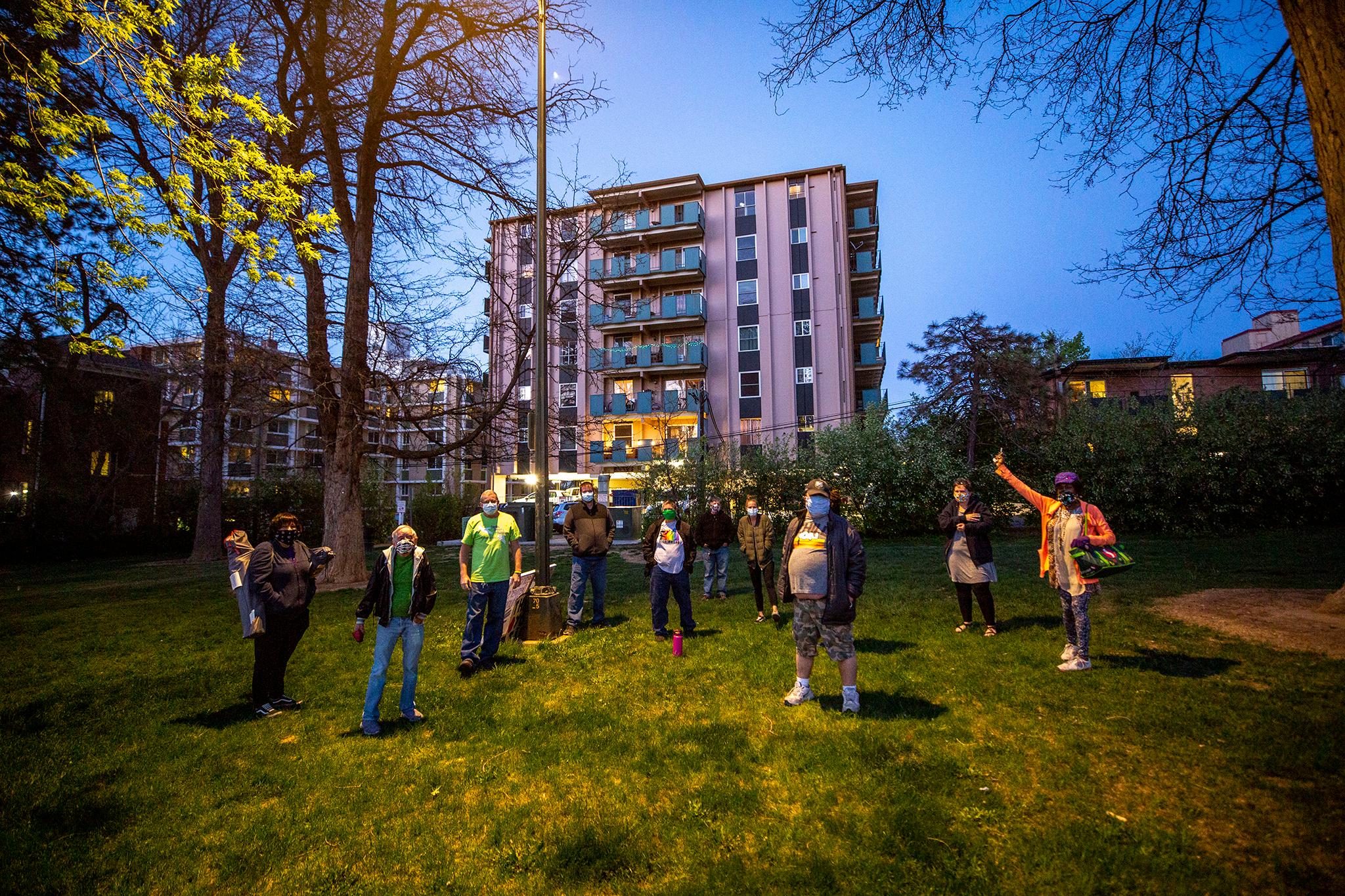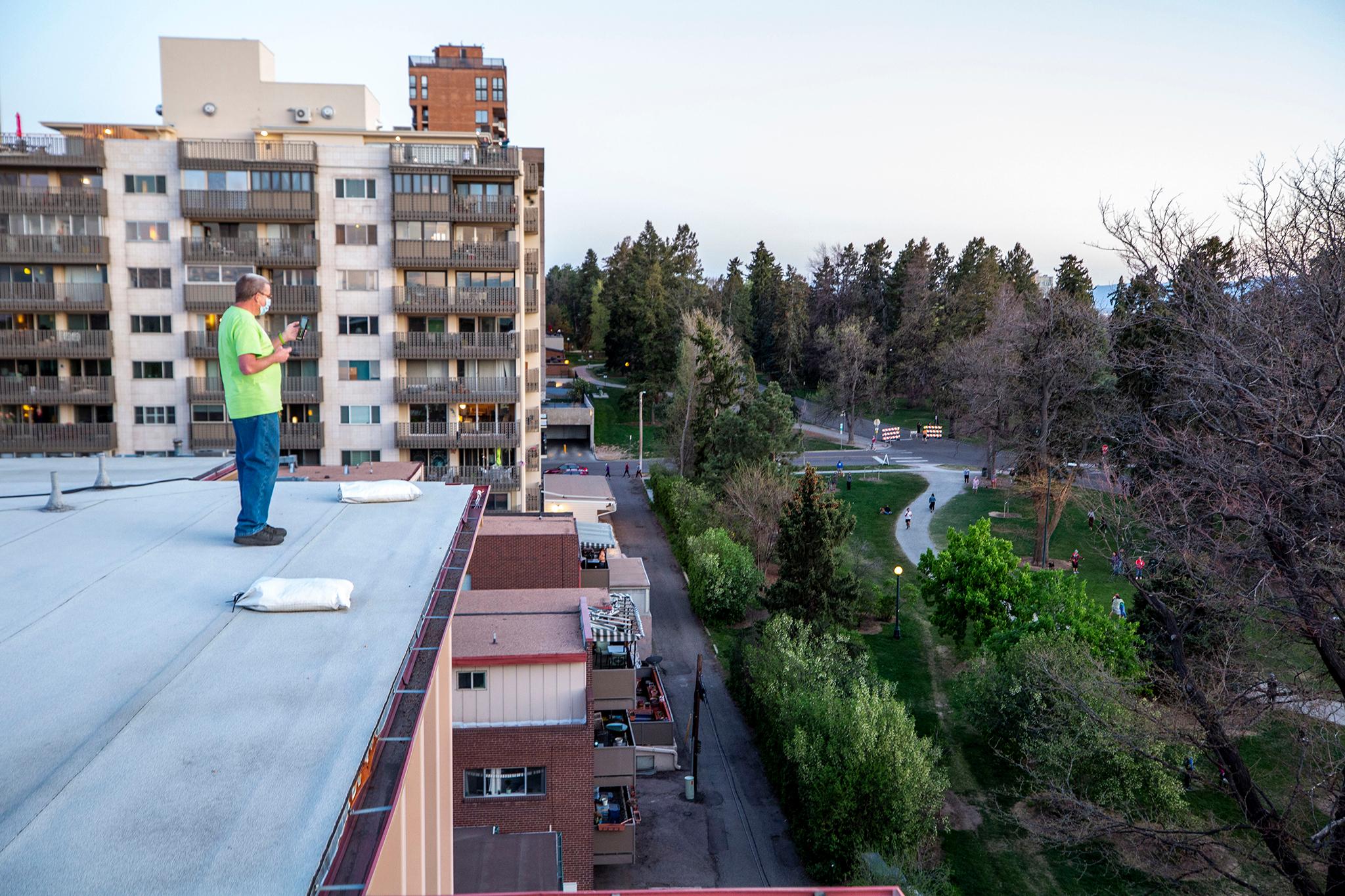For weeks, music has echoed over Cheesman Park and the surrounding neighborhoods each night as Denverites belted their 8 p.m. howls to honor frontline workers. It began with a supermoon in April, when "We Are the World" rose from the darkness. It's been a nightly tradition ever since.
At first, there was no apparent source for the impromptu concert. Sound waves echoed off every nearby structure. But as the songs shifted from For Africa to Gloria Estefan to Prince, Jim Scharper began to peek further out from over the eave of his apartment building.
"I used to make sure I was hidden," Scharper said. "I'm a pretty shy guy most of the time."
He began to see dozens of grateful messages on social media, and he responded. Many times, people requested the next night's tune. But more often, people just said they loved hearing his songs ring into the evening. They looked forward to it every day as they dealt with the pandemic and restrictions all around them.
"Please don't stop," he recalled one message said.
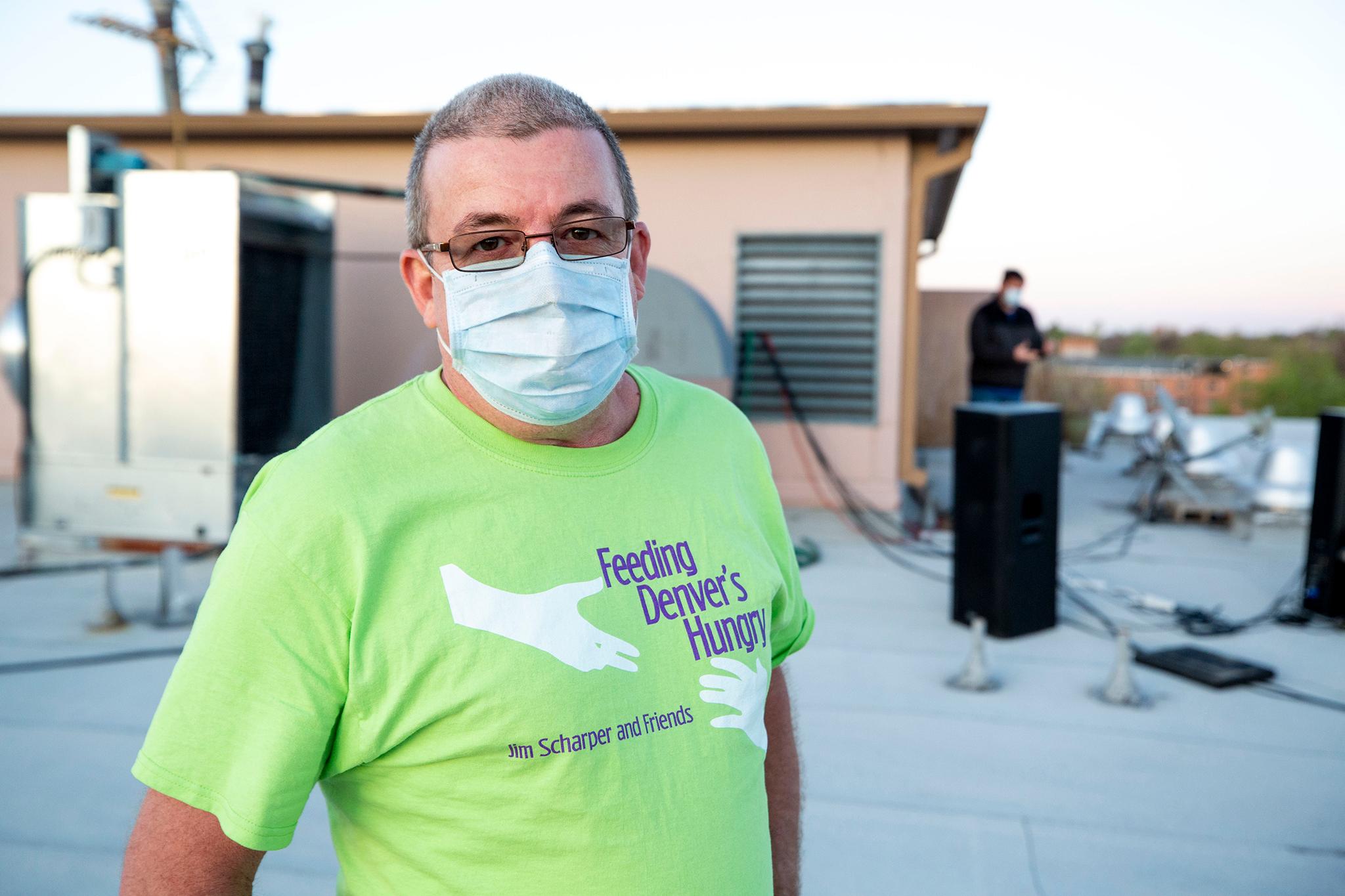
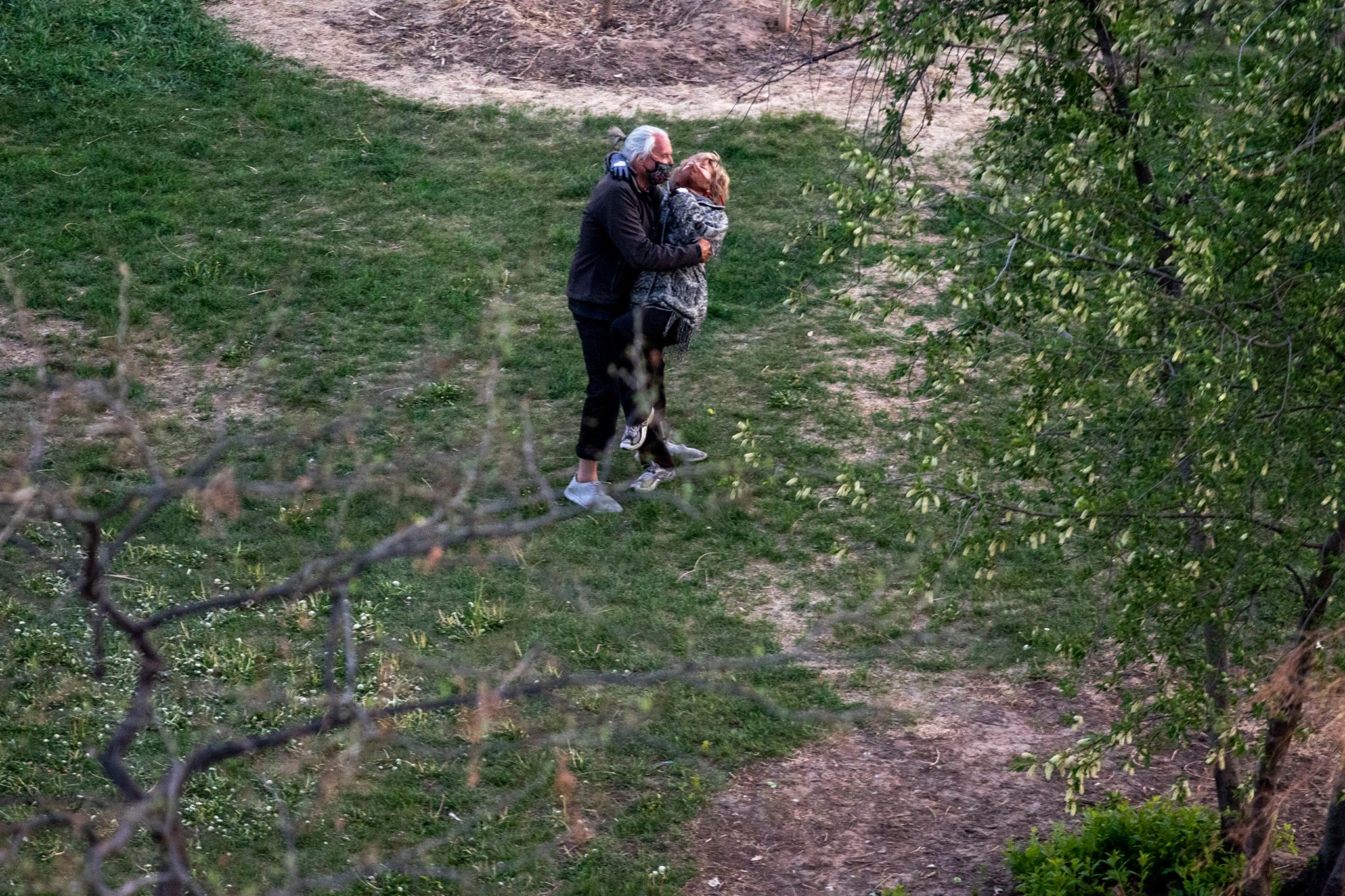
On Thursday, Scharper and his husband, David Hailey, played Van Morrison's "Moondance." The moon was again supposed to be full, though the glowing ball was hidden somewhere beneath a low bank of clouds. Scharper walked to the edge of his roof, which is unfurnished. He waved to neighbors and to a crowd of friends who stood in the grass below. Someone held a sign that read, "Thank you Jim!"
Richard Colin said he really appreciates the nightly show.
He's long been friends with Scharper and has followed the parkside concerts since the beginning. On Thursday, he joined the cadre of regulars in the park.
Colin has needed a bright spot in his day more than ever. On Tuesday, he lost his mother to COVID-19. His father died after contracting the disease less than two weeks prior. They were in their 80s and lived in Estes Park.
When Scharper learned about Colin's situation, he changed his Wednesday night plans to play "Baby Shark," a request from the kids. Instead, he chose Enrique Iglesias' "Hero" to reverberate in the evening's fading light.
"I heard he was coming and his mother had just passed away and that's when I knew that was the song," Scharper said. "It made us all cry."
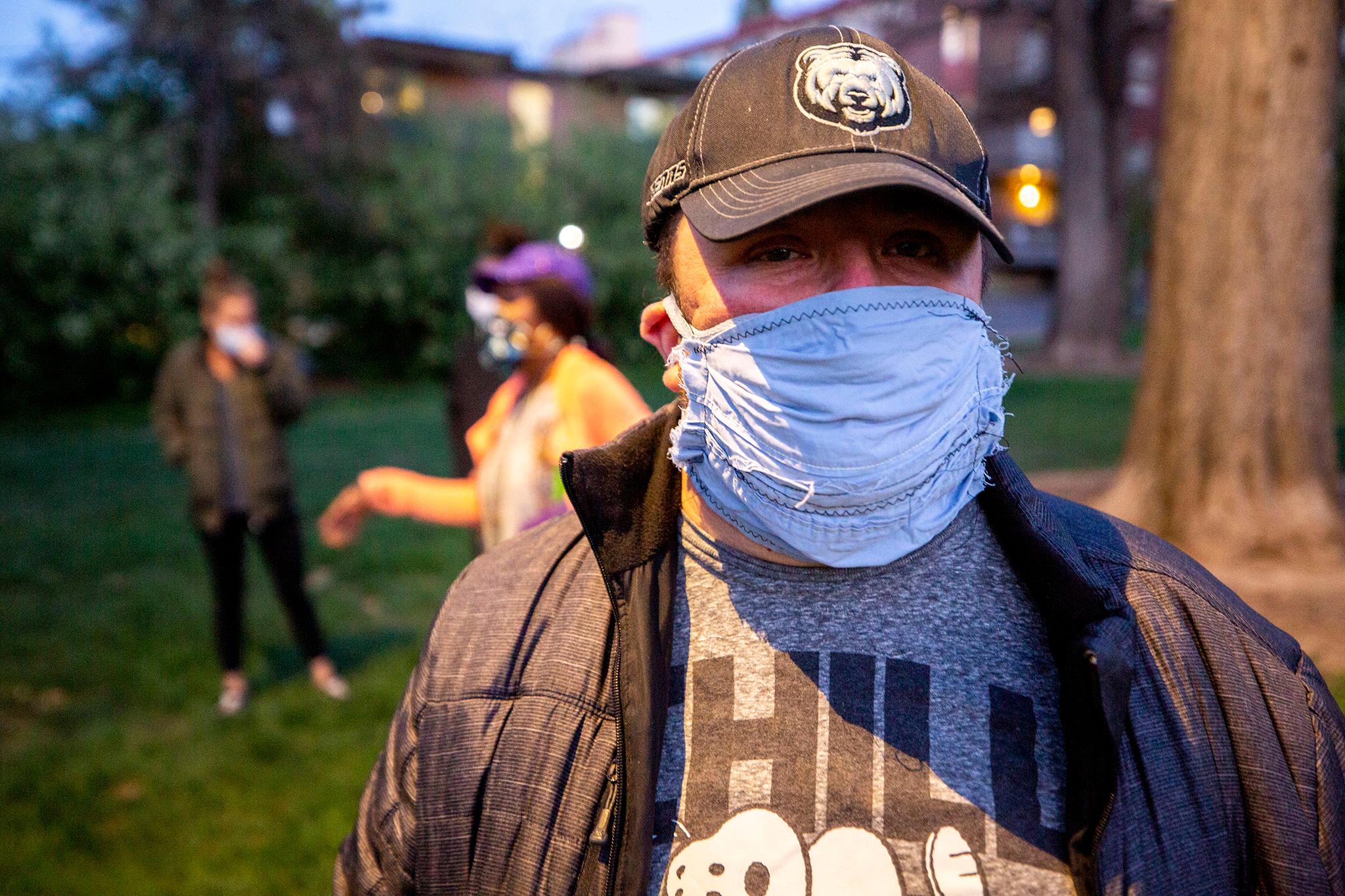
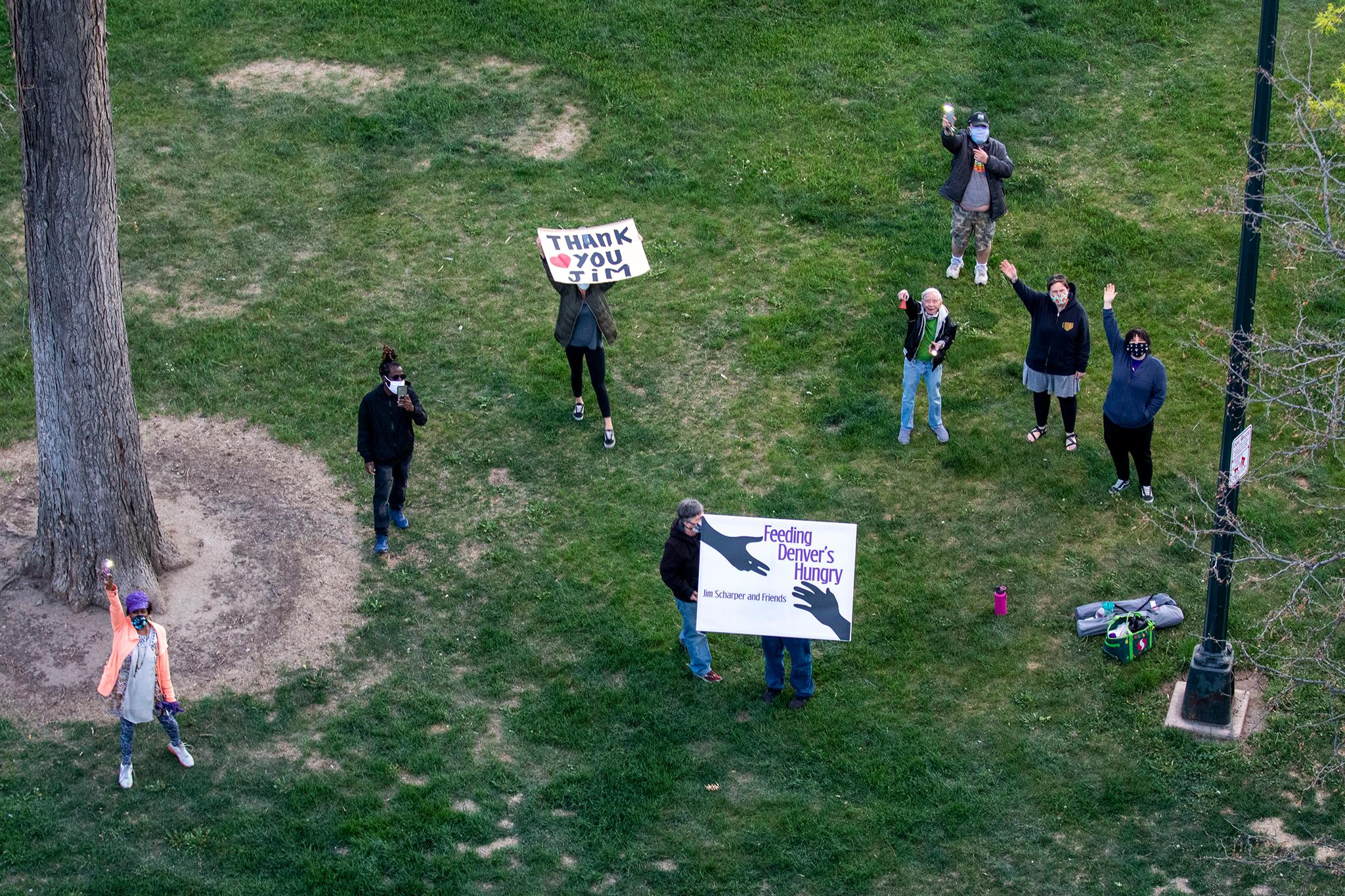
Colin said it was a special night. He and his friends agreed: there's something powerful about an experience that hundreds of others must be taking part in at once. Scharper said people as far west as 8th Avenue and Downing Street could hear the music coming from his rooftop at Cheesman's northeast corner.
"It does help, but I have my good moments and my bad moments," Colin said. He now has a lot on his plate as he settles his parents' affairs.
But little things like this help keep him occupied, he said, and it's not just the music. He also helps Scharper prepare food donations distributed through his nonprofit, Feeding Denver's Hungry.
Scharper's life revolves around service, and that's why the music has gone on for so long.
He founded Feeding Denver's Hungry after he spent the winter of 2008 living in Denver without a home. After he got back on his feet, he wanted to support to people living in precarious situations.
Until recently, he and dedicated volunteers like Colin packed as many as 2,500 meals a month into bags that they distributed throughout the city, mostly downtown. But the economic downturn resulting from the pandemic meant many more people than normal have needed a hand. A Montbello food pantry saw more than a tenfold expansion in need. Scharper said Feeding Denver's hungry prepared 52,000 bags last month, twenty times more than usual. FritoLay donated two semi-trailers full of chips in April, and he said they've already gone through half the supply. The nonprofit is giving away entire carloads of groceries to families who need them.
It's not even Scharper's job. When he's not running the nonprofit or blaring music from his roof, he manages 14 high rise apartment buildings in the city.
Each night he's exhausted, he said, but "there's just too many people that are hungry, and I just can't stop."
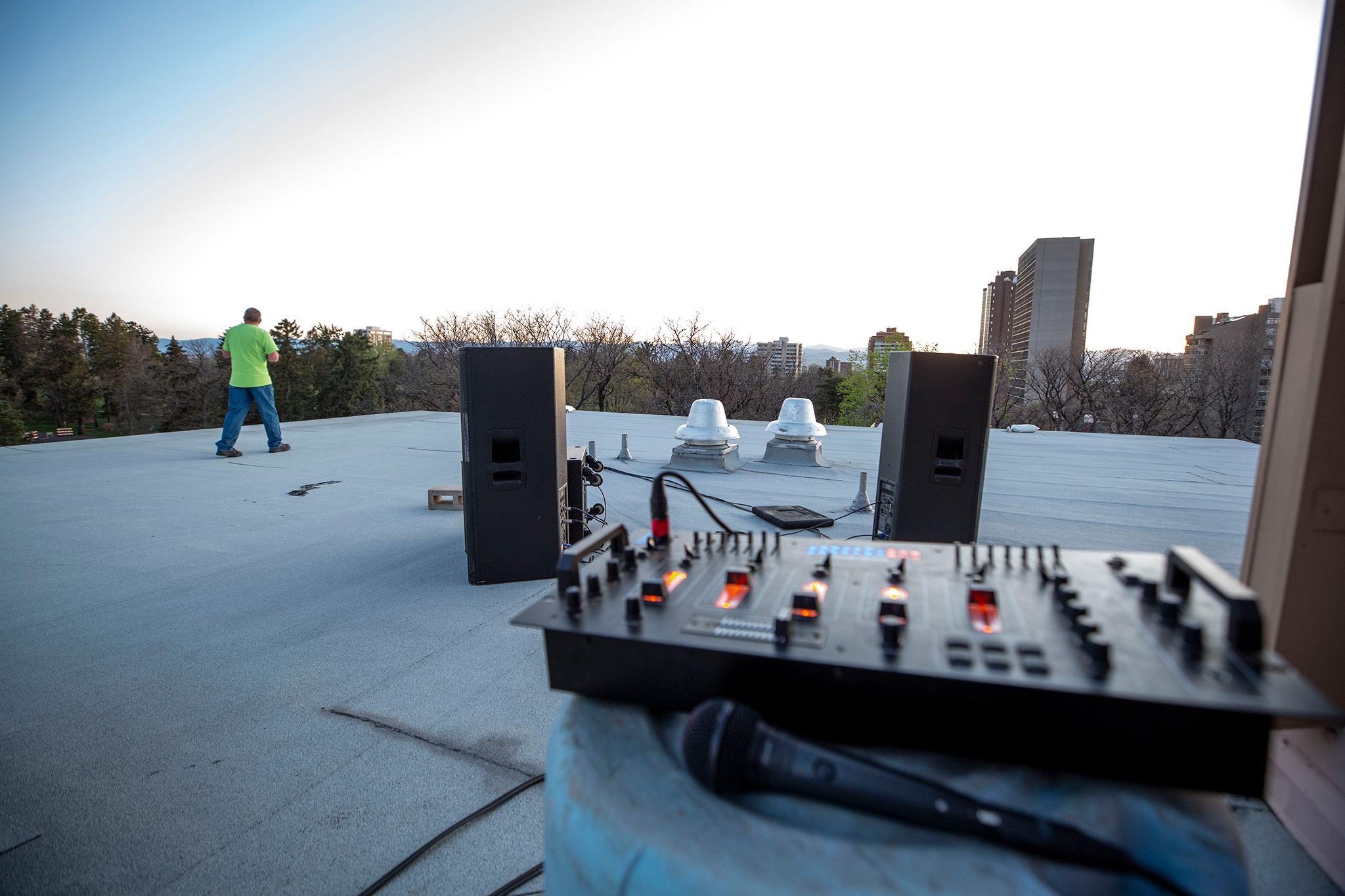
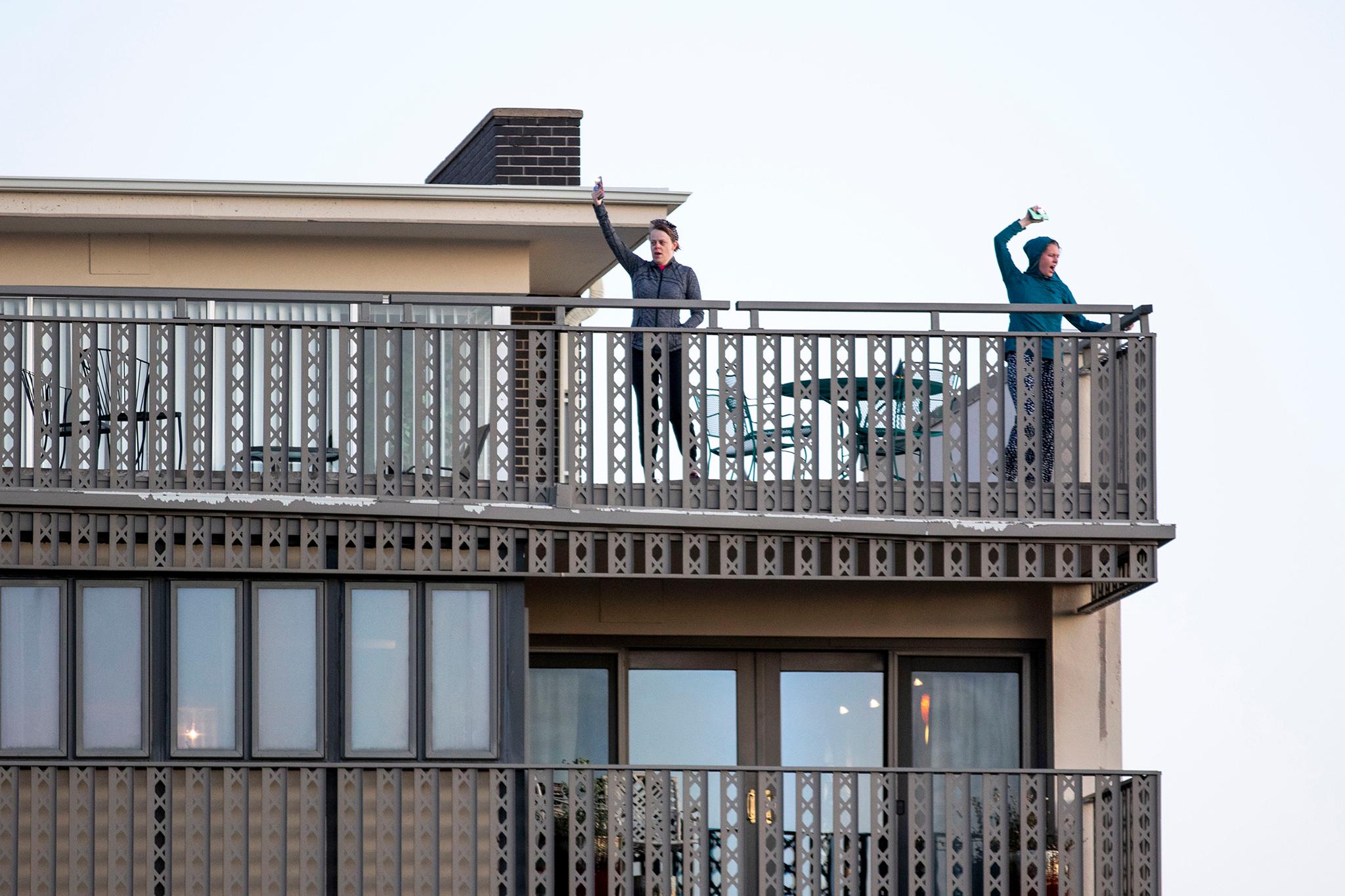
Scharper is intimately familiar with how difficult things are for some in the city. And though playing music is no substitution for a meal, he reckons he's still able to spread something nice to people he may never meet with his nightly songs.
"It's a positive touch to everybody that hears it," he said. "I don't want to stop until we're all back to work and back to normal."
Whenever he feels ready to stop, he said, he'll play "We Are the World" one last time.
